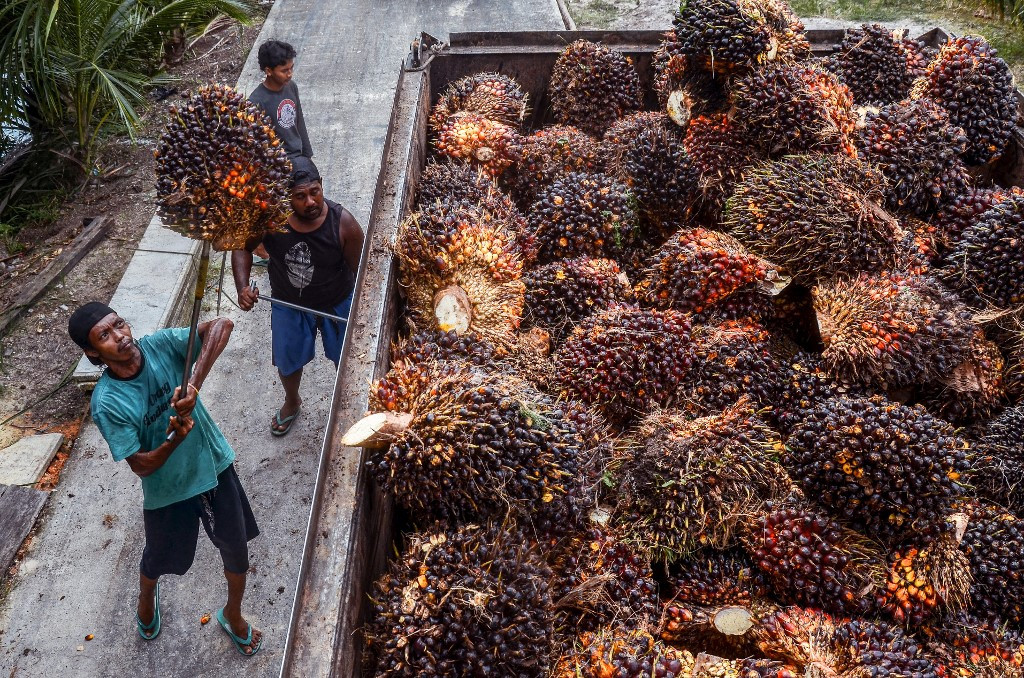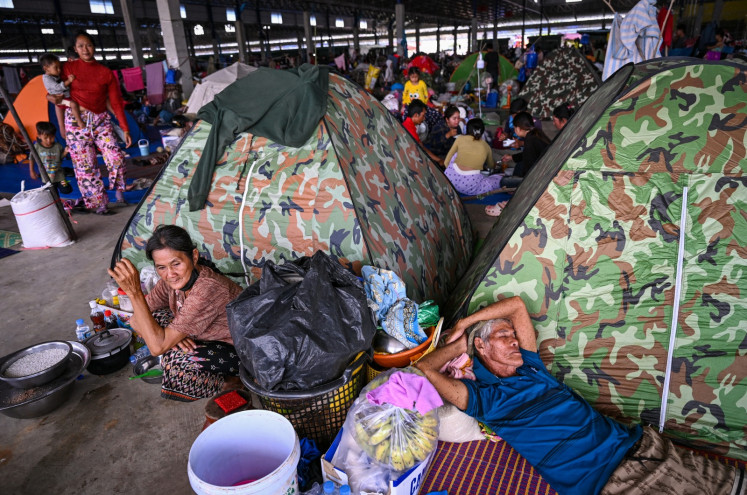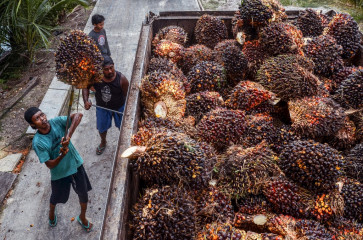Popular Reads
Top Results
Can't find what you're looking for?
View all search resultsPopular Reads
Top Results
Can't find what you're looking for?
View all search resultsElectronic invoicing is key to breaking the palm oil price mystery
In fact, millions of farmers, who account for almost 40 percent of the country’s 16 million hectares of oil palm plantations, have been complaining about the steep decline in the price of their fresh fruit bunches as big companies that control the refining industry hesitated to increase stocks.
Change text size
Gift Premium Articles
to Anyone
N
ow that the week-long holiday for the Idul Fitri celebration has ended, businesspeople and even farmers' associations have begun asking when the blanket export ban on palm oil, which was imposed on April 28, would end.
President Joko “Jokowi” Widodo has said the export ban on crude palm oil, refined palm oil, refined, bleached and deodorized (RBD) palm olein and used cooking oil would be lifted only after the retail price of bulk cooking oil fell down to Rp 14,000 (96 US cents) per liter or half of the free market price at present.
But more than two weeks after the ban, the price of cooking oil remains far above the retail price ceiling.
Executives of palm oil companies and a number of analysts have doubted that the widescale export ban would be able to press down cooking oil prices to the target retail price. They said the international prices of palm oil would continue to skyrocket because the global shortage of edible oils could even worsen due to the likely protracted Ukraine crisis, as both Russia and Ukraine accounted for over 75 percent of the world’s sunflower oil supply.
Unless the government establishes a well-managed market intervention mechanism under a well-managed subsidy scheme, the export ban would only inflict more damage to the whole economy, cutting government revenues from palm oil export tax and surcharge and foreign exchange earnings. Last year alone, palm oil exports earned US$28.52 billion, or 14.20 percent of total non-oil exports.
Yet a more devastating impact of a longer export ban is the risk of massive worker layoffs in the palm oil industry, with the Indonesian market share of the global trade being eroded by Malaysia, the world’s second-largest palm oil producer.
In fact, millions of farmers, who account for almost 40 percent of the country’s 16 million hectares of oil palm plantations, have been complaining about the steep decline in the price of their fresh fruit bunches as big companies that control the refining industry hesitated to increase stocks.



















